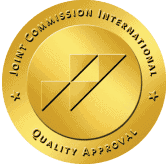At Assure Recovery, we understand that alcoholism is not about weakness; it’s a disease, and it’s treatable. With personalized care, medical guidance, and a supportive community, we help individuals find hope, healing, and the strength to begin their journey to stop drinking and build a healthier, more fulfilling future.
What Causes Alcohol Addiction?
Alcoholism, also called alcohol use disorder (AUD), doesn’t happen overnight. For many people, it develops gradually, often starting with occasional social drinking and progressing into a more serious alcohol problem over time.
The Diagnostic and Statistical Manual of Mental Disorders (DSM-5) explains that alcohol use disorders are diagnosed when a person shows certain patterns, such as alcohol abuse, alcohol dependence, or the compulsive behaviors tied to alcohol addiction. What might begin as occasional or social drinking can gradually develop into an alcohol problem and, over time, progress into more severe stages of alcoholism. For some, the desire to stop drinking becomes overwhelming, but without the right support, the pull of alcoholic beverages and the changes in the brain caused by AUD can make recovery feel impossible.
Several factors can increase the risk of developing AUD:
- Genetics and family history. Having a parent or close relative with alcoholism can raise the likelihood of developing an alcohol use disorder yourself.
- Environment and social influences. Growing up where alcoholic beverages are readily available, or being in social circles that encourage binge drinking, can normalize heavy alcohol consumption.
- Stress and trauma. Life challenges, past trauma, or ongoing stress can make drinking feel like a way to cope, but it often leads to deeper dependence.
- Mental health conditions. Struggles with anxiety, depression, or another medical condition can increase vulnerability to alcohol abuse as individuals try to self-medicate.
- Early alcohol use. Research shows that starting to drink alcohol at a young age increases the risk of developing alcohol dependence later in life.
According to the National Institute on Alcohol Abuse and Alcoholism (NIAAA), millions of Americans reported struggling with an alcohol problem in the past year, with many meeting criteria for AUD. Because alcohol raises blood alcohol concentration quickly, repeated heavy drinking puts both physical and mental health at risk.
At Assure Recovery, we know that alcohol use disorder is not about weakness; it’s a complex condition shaped by many influences. Our compassionate team works with each person to uncover the root causes of their drinking and build a personalized plan for healing and long-term recovery.

Signs and Symptoms of Alcoholism
Because alcoholism, also called alcohol use disorder (AUD) is a chronic brain disorder, its signs often go deeper than just “drinking too much.” Recognizing these early red flags can make all the difference in preventing long-term harm.
Some of the most common symptoms of an alcohol problem include:
- Spending large amounts of time obtaining, using, or recovering from alcoholic beverages
- Consistently drinking more than intended, often five or more drinks in a single sitting (binge drinking)
- Developing tolerance, needing more alcohol to feel the same effects
- Continuing to engage in alcohol use despite the toll it takes on your health or relationships
- Experiencing withdrawal symptoms, such as sweating, shaking, anxiety, or trouble sleeping, when you try to stop drinking
- Neglecting responsibilities at work, school, or home because of drinking
- Risky behaviors like driving drunk or engaging in unsafe sex while intoxicated
It’s important to remember that experiencing these symptoms doesn’t mean you have failed; it means your body and mind are struggling with a medical condition that needs care.

Alcohol Abuse vs. Alcohol Dependence
When we talk about alcoholism, it’s important to understand the difference between alcohol abuse, alcohol dependence, and alcohol addiction. These terms describe different stages of a drinking problem, but all of them signal the need for support and care.
Alcohol Abuse
This happens when patterns of problem drinking begin to cause harm. A person may find themselves consuming too many alcoholic beverages, engaging in risky behaviors like driving drunk, or facing negative consequences such as strained relationships, missed work, or ongoing health problems. What may start as “normal” social drinking can quietly shift into a cycle of time drinking that disrupts daily life.
Alcohol Dependence
At this stage, the body and mind begin to rely on alcohol. Someone may feel unable to quit drinking even when they want to. Dependence often shows up as withdrawal symptoms if alcohol use suddenly stops. Without immediate medical care and the guidance of trained health care providers, severe withdrawal can become life-threatening.
Alcohol Addiction
This is the most severe form of AUD. A person’s drinking behavior becomes compulsive, and alcohol takes priority over responsibilities, relationships, and health. People living with addiction may struggle with low self-esteem, a constant pull to drink, and an inability to control how much or how often they use alcohol.
Each stage reflects a deeper level of struggle with alcohol use disorder, and each carries its own risk factors for worsening physical and mental health. The good news is that no matter where someone finds themselves on this spectrum, recovery is possible.

Treatment for Alcohol Use Disorder
When someone is struggling with alcohol problems or what’s often called alcoholism (alcohol use disorder/AUD), it’s important to remember that effective treatment goes beyond simply deciding to quit drinking. For many people, especially heavy drinkers or those experiencing alcohol withdrawal symptoms, trying to stop on their own can be dangerous and even life-threatening. That’s why professional support is so important.
At Assure Recovery, we provide evidence-based treatment programs designed to address the physical, emotional, and behavioral sides of alcohol use disorder. Our care includes:
Medical Detox and 24/7 Support
For individuals with physical dependence, safely reducing alcohol intake requires close monitoring. Our medical detox program helps stabilize the body, manage alcohol withdrawal symptoms, and reduce the risks that can come from suddenly stopping drinking alcohol or consuming alcoholic beverages after long-term use.
Residential Treatment
In our residential treatment program, clients receive around-the-clock care in a structured, supportive environment. This safe space allows people to step away from the triggers and stressors that may contribute to alcohol abuse or substance use disorders, and begin focusing fully on recovery.
Intensive Outpatient Programs (IOP)
For those who need flexibility while still addressing their alcohol problems, our intensive outpatient program provides evidence-based therapy, relapse prevention tools, and accountability, while allowing clients to continue work, school, or family responsibilities.
Dual Diagnosis Treatment
Since alcoholism is a brain disorder that often occurs alongside mental health conditions such as depression, anxiety, or post-traumatic stress disorder (PTSD), our dual diagnosis care is designed to treat both the alcohol use disorder (AUD) and any co-occurring health problems. This integrated approach helps clients heal both physically and emotionally.
Family Therapy & Support
We know that alcohol problems affect more than the person drinking; they impact the entire family. That’s why we offer family therapy and support services to rebuild trust, improve communication, and create a healthy home environment for recovery.
Through these personalized treatment programs, our team at Assure Recovery walks alongside each client, addressing not just the act of drinking alcohol but also the underlying causes that drive alcohol addiction. With the right care and ongoing support, people can overcome alcohol use disorder, repair relationships, and build a life free from the grip of alcoholic beverages and the health problems caused by excessive drinking.

Getting Help for Alcoholism
If you or a loved one is experiencing alcohol dependence, alcohol abuse, or alcohol addiction, seeking help from a professional addiction treatment center like Assure Recovery can be life-saving. Our programs are tailored to address the medical, emotional, and social aspects of recovery, helping clients stop drinking, restore their health, and rebuild their lives.
Contact Assure Recovery today to learn more about our evidence-based programs for alcohol use disorder and begin your path to healing.
Sources
National Institute on Alcohol Abuse and Alcoholism. (n.d.). Alcohol use disorder: From risk to diagnosis to recovery. NIAAA Health Professionals & Communities Core Resource. Retrieved from https://www.niaaa.nih.gov/health-professionals-communities/core-resource-on-alcohol/alcohol-use-disorder-risk-diagnosis-recovery
National Institute on Alcohol Abuse and Alcoholism. (n.d.). Alcohol use disorder (AUD) in the United States: Age groups and demographic characteristics. Alcohol Facts and Statistics. Retrieved from https://www.niaaa.nih.gov/alcohols-effects-health/alcohol-topics/alcohol-facts-and-statistics/alcohol-use-disorder-aud-united-states-age-groups-and-demographic-characteristics
Mayo Clinic Staff. (n.d.). Alcohol use disorder – Symptoms and causes. Mayo Clinic. Retrieved from https://www.mayoclinic.org/diseases-conditions/alcohol-use-disorder/symptoms-causes/syc-20369243


